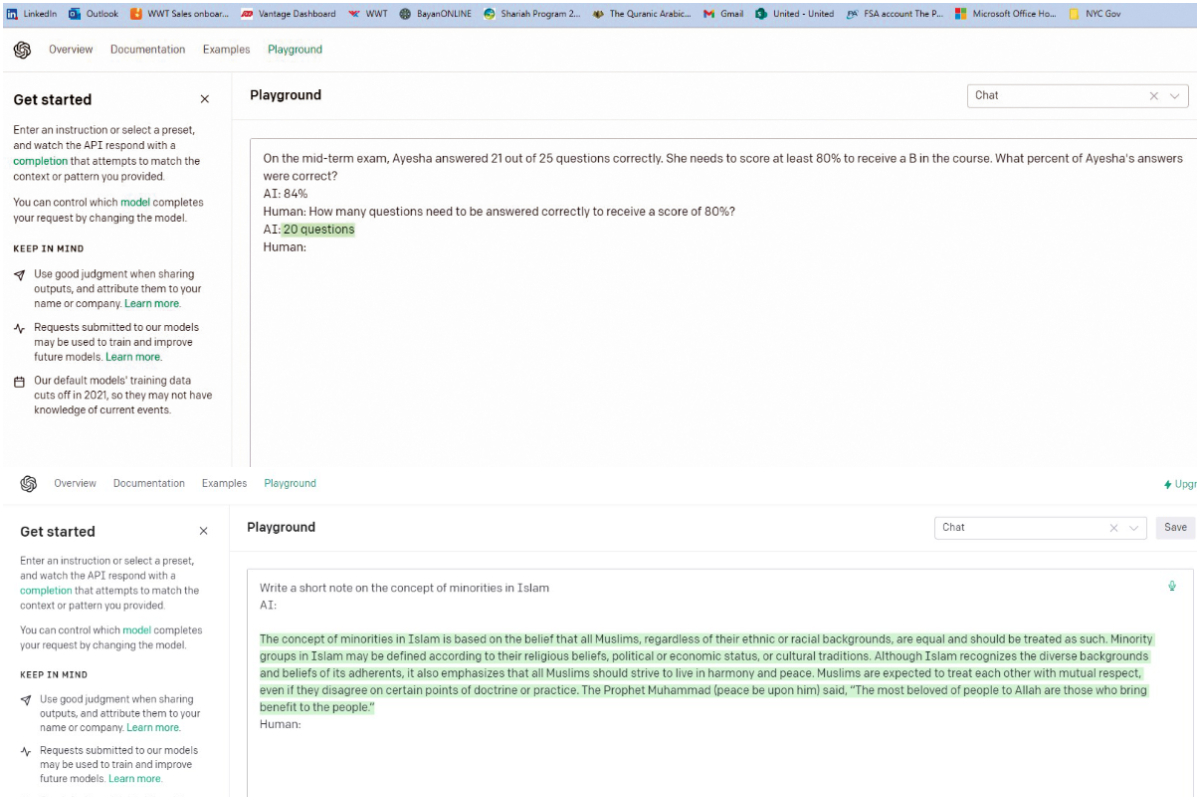
Will I Lose My Job?
Automation of industries led to the decline of most manual labour occupations in the last two centuries. Mechanical arms and legs took the place of human arms and legs. But the need for “knowledge workers” — a phrase coined by management expert Peter Drucker in 1959 to describe those who do non-routine problem-solving — has only increased. Our economy is transitioning towards one based on the dissemination and application of information, and the white-collar “babu” have felt secure so far.
Now that the robots can do most jobs, humans traditionally consider intellectual labour; you and I are easily replaceable.
The research firm OpenAI published natural-language conversations ChatGPT last month, generating great hype. ChatGPT is the most recent example of technology that seems capable of doing activities that were thought to need highly educated humans not so long ago.
ChatGPT is a surprisingly competent writer, to the point, where early users regard it as “some mix of software and sorcery,” as Kevin Roose explained in a recent article in The Times. (The article’s headline: “The Brilliance and Weirdness of ChatGPT.”)
Under the right circumstances, with the right prompt, this cyber Cyrano produces relatively seamless prose of considerable ingenuity.
Plato mourned the invention of the alphabet, worried that text would threaten traditional memory-based arts of rhetoric. In “Dialogues”, arguing through the voice of Thamus, the Egyptian king of the gods, Plato claimed that the use of this more modern technology would create “forgetfulness in the learners’ souls, because they will not use their memories”, that it would impart “not truth but only the semblance of truth” and that those who adopt it would “appear to be omniscient and will generally know nothing”, with “the show of wisdom without the reality”.
If Plato were alive today, would he say similar things about ChatGPT?
The educators are nervous, recognising a spectre on the horizon — no, right in front of us — that makes plagiarism look quaint. Last week, The Atlantic published an article by Stephen Marche titled “The College Essay Is Dead.” That was followed just three days later by Daniel Herman’s article, “The End of High School English.” I figure “Curtains for the Seventh Grade” will be out next week and fast on its heels, “Is Literacy Obsolete?”
In the ivory towers elite academia, conversations about whether the students would be turning in papers generated by AI segued into conjecture about whether professors would respond by grading those papers with AI.
Schools had already been dealing with the internet’s wealth of knowledge, lies, misleading claims and essay mills.
Following are my recent queries.
One way has been to change how we teach. Instead of listening to a lecture in a class and then going home to do research and write an essay, the students listen to recorded lectures and conduct research at home, then write essays in class under the supervision of the peers and professors and even in cooperation. This approach is called flipping the classroom.
In flipped classrooms, the students only use ChatGPT to conjure up a portion of the essay. Instead, they would use it to generate critically examined building blocks of papers. It would be similar to how the students in advanced math classes can use calculators to resolve complex equations without replicating tedious, previously mastered steps.
The teachers could assign a complicated topic and allow the students to use such tools as part of their research. Assessing the veracity and reliability of these AI-generated notes and using them to create an essay would be done in the classroom, with the teacher guidance and instruction. The goal would be to increase the quality and complexity of the argument.
This would need more educators providing thorough feedback. Adapting to conversational AI in flipped classrooms may worsen the inequities in the absence of equitable distribution of necessary resources.
In schools with minimal resources, some students may submit writings authored by artificial intelligence without acquiring the valuable skills or understanding what they have written. Plato said: “Not truth, but merely the appearance of truth.”
Some school administrators may see this issue as one of the simple plagiarism detection and increasing the usage of oppressive monitoring tools.
During the epidemic, many students were required to take exams or compose essays in front of an automatic eye-tracking device or on a locked computer to avoid cheating.
The automated plagiarism software may become supercharged in a fruitless arms race against conversational AI, making schools more punitive for the students. Worse, such procedures will always result in erroneous allegations, eroding confidence and even derailing talented students’ careers.
Approaches to education regarding the students as adversaries educate kids to despise authority. That is not a formula for human improvement.
While some students need to catch up, enhanced artificial intelligence will generate a need for other sophisticated abilities.
In 1971, Nobel winner Herbert Simon observed that as the quantity of information increased, so did the worth of the human attention. As he phrased it, “A richness of knowledge generates a poverty of attention.”
Likewise, distinguishing the truth from a plethora of plausible sounding but terribly erroneous responses will be invaluable.
If Plato were alive today, would he be suspicious about ChatGPT?
(The writer is an EdTech expert)
Catch all the Economic Pulse News, Breaking News Event and Latest News Updates on The BOL News
Download The BOL News App to get the Daily News Update & Live News.








 Read the complete story text.
Read the complete story text. Listen to audio of the story.
Listen to audio of the story.